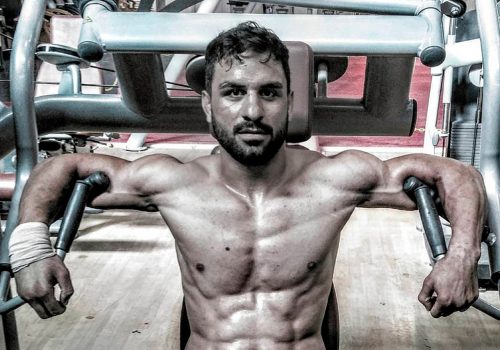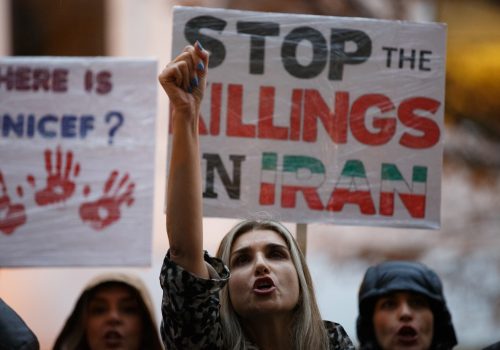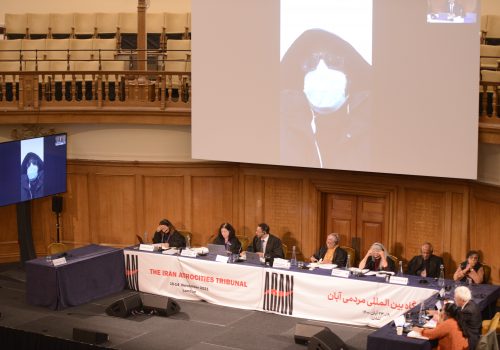To challenge the Islamic Republic’s propaganda agenda, the UN deputy high commissioner must delay her visit
An upcoming United Nations Deputy High Commissioner for Human Rights visit to Iran scheduled for February 3-5 sparked intense debate among civil society organizations. Proponents of the visit emphasize the urgent need for ongoing dialogue, asserting that maintaining communication channels is crucial to fostering positive changes in Iran’s human rights landscape. They argue that engaging with Iranian officials presents an important opportunity to advocate for tangible improvements and negotiate for stronger protection of human rights. However, critics still need to be convinced, highlighting the disappointing outcomes of previous dialogues and raising concerns about the effectiveness of continued discourse without concrete, enforceable commitments from the Islamic Republic. There is a prevailing fear that the Iranian authorities could exploit the visit to create a misleading perception of compliance, diverting attention from the crucial importance of sustained international engagement and oversight.
Impact Iran, a coalition of nineteen civil society organizations focused on promoting respect for human rights in the country, was joined by several international advocates to communicate their concerns in an open letter dated January 29 to Deputy High Commissioner Nada Al-Nashif. While they value the importance of diplomatic engagement and recognize the critical role of her office in addressing human rights, they raise concerns about the visit’s timing. Notably, the UN Human Rights Council (UNHRC) is set to convene in mid-March to scrutinize Iran’s human rights record, a session that follows closely on the heels of the high commissioner’s visit. The group fears that the visit might lend an unwarranted veneer of acceptability to Iran’s human rights record, thereby weakening the UN’s ability to hold the country accountable.
The UNHRC’s upcoming session is poised to be a pivotal moment in international human rights advocacy, as it will feature a report from the UN Independent Fact-Finding Mission on the Islamic Republic of Iran that will present its findings. Tasked with a rigorous independent inquiry into the alleged human rights violations related to protests and civil unrest that erupted across Iran in 2022 following news of the killing of 22-year-old Mahsa Jina Amini while in the custody of the country’s so-called “morality police,” the mission aims to articulate the scope and scale of violations and create a repository of evidence that could be instrumental in holding perpetrators accountable in international legal frameworks. Thus, the UNHRC braces for presentations that may profoundly influence the course of justice and shape its strategy in advocating for the protection and promotion of human rights in Iran.
The UN Special Rapporteur on the situation of human rights in the Islamic Republic of Iran, Javaid Rehman, will present his findings in concert with their report. His report, informed by thorough investigations and eyewitness accounts, will shed light on the current situation and evaluate Iran’s adherence to its international human rights obligations. The rapporteur’s insights support the global community’s understanding and response to Iran’s human rights challenges.
The UNHRC will also select a new special rapporteur to monitor Iran in the late spring. Established in 2011, this mechanism is tasked with the painstaking monitoring of Iran’s adherence to human rights norms. Yet, the Islamic Republic has consistently resisted cooperation with the UN in this capacity, denying entry to three previous mandate holders despite the worsening human rights situation within the country. The deputy high commissioner’s visit offers a timely opportunity to broach the subject of increased cooperation with the Iranian authorities. Al-Nashif could leverage the meeting to negotiate terms that may foster a more collaborative relationship with the forthcoming mandate holder, thereby influencing the council’s decision-making process regarding who is best suited to fulfill this sensitive and pivotal role effectively.
SIGN UP FOR THE THIS WEEK IN THE MIDEAST NEWSLETTER
In light of this, the deputy high commissioner’s visit will likely be scrutinized by the international human rights community during and after her trip, as the rights advocates anxiously await to see how her engagement may impact the council’s critical decisions in the coming weeks and months. This is especially the case since the recent surge in executions in the country, including the execution of four ethnic Kurds who were hanged for alleged espionage after trials that were purportedly conducted without proper due process. The execution of individuals under the age of thirty, accused of plotting a bomb attack, has sparked widespread condemnation and drawn attention to the lack of fair trials and allegations of torture. The secretive nature of the judicial process and reports of physical assaults and suppression of information by security forces following the executions have raised alarm about the treatment of political prisoners.
Articulating a deep-seated unease about the visit’s potential impact, particularly in light of escalating executions and the suppression of women’s movements, the coalition led by Impact Iran warns of the possibility that the visit could serve as a tool of propaganda for the Iranian authorities, potentially undermining the UN’s unwavering commitment to human rights in Iran. Renowned figures like Nobel Laureate Shirin Ebadi have also called on the deputy high commissioner to align with the victims and protestors by either reconsidering her visit or assuming symbolic gestures of protest, such as forgoing the headscarf. They urge her to engage with groups beyond government officials, including individuals and families directly impacted by the regime’s draconian policies. However, civil society advocates are also careful to point out that they aren’t pushing for non-engagement but for a strategic reassessment of the visit’s timing and scope, advocating for thorough monitoring measures and unfettered access to individuals in detention.
Some note, for example, that scheduling the visit after the UNHRC session allows for a more strategic and impactful engagement. This timing would enable the Deputy High Commissioner Al-Nashif to discuss the findings of the council’s mechanisms with Iranian officials, armed with the most up-to-date information and evaluations from the UN special rapporteur and the UN fact-finding mission. Such synchronization would also ensure that the engagement is informed by the council’s discussions and resolutions, further equipping the deputy high commissioner to address Iranian authorities with clear international expectations in mind.
Moreover, the scheduled visit has stirred a broader discourse about the consistency and coherency of the UN’s strategy for promoting and protecting human rights in Iran. Critics argue that while such high-profile visits could elevate awareness, their ill-timed execution could undercut the momentum of other UN bodies and efforts. Scheduled ahead of the UNHRC’s critical evaluation, including the fact-finding mission, the visit risks sending mixed signals about the United Nation’s stance on human rights in Iran.
For the UN to maintain the efficacy and integrity of its human rights advocacy, it’s imperative to harmonize its various mechanisms to avoid providing inadvertent avenues for violators to evade their obligations. When UN bodies operate in isolation, without a cohesive strategy, their actions can be counterproductive. High-profile visits, such as that of the UN Deputy High Commissioner for Human Rights Al-Nashif, should be intricately coordinated with ongoing investigations and diplomatic initiatives to avoid any semblance of legitimizing or endorsing a state’s actions prematurely.
It is critical for the various arms of the United Nations to conduct their work in a manner that is synchronized, reinforcing each other’s efforts, to ensure there are no mixed messages that could bolster a violator’s resolve. This coordination is essential to present a unified front that stands up to scrutiny and holds violators accountable with tenacity and unequivocal clarity. To maintain the integrity and effectiveness of its human rights advocacy, the UN must send a clear and consistent message: cooperation on one front does not negate accountability on another.
Rose Parris Richter is the executive director of Impact Iran, a coalition of nineteen human rights organizations committed to advocating for human rights in the country.
Further reading
Wed, Sep 16, 2020
#Don’tExecute: A semi-successful campaign against capital punishment in Iran
IranSource By
For the third time in less than two months, Iranians took to Twitter in late August to express their outrage over another death sentence handed out to a protester.
Fri, Jan 20, 2023
UNICEF isn’t doing enough to protect Iranian children during protests. It’s time they step up.
IranSource By
Iranians don’t appear to be convinced that the United Nations’ dedicated children agency is doing enough and fulfilling its mandate.
Wed, Jan 26, 2022
Aban will not die: How truth remains a powerful weapon against the Islamic Republic
IranSource By
In November 2021, The Iran Atrocities (Aban) Tribunal in London investigated if Iranian government officials, police, and military forces had committed crimes against humanity during the November 2019 protests. In front of the eyes of the Iranian public, bit by bit, pieces of the truth were put together.
Image: EDMONTON, CANADA - JANUARY 27, 2024: Members of the Iranian diaspora and activists gather in Dr. Wilbert McIntyre Park during the 'United Against Executions in Iran' protest, condemning the increase in death sentences by the rulers of the Islamic Republic of Iran, on January 27, 2024, in Edmonton, Alberta, Canada. In 2023, Human Rights Activists in Iran (HRANA), a non-political and nongovernmental organization dedicated to defending human rights, reported that at least 746 people were executed in Iran. (Photo by Artur Widak/NurPhoto)


